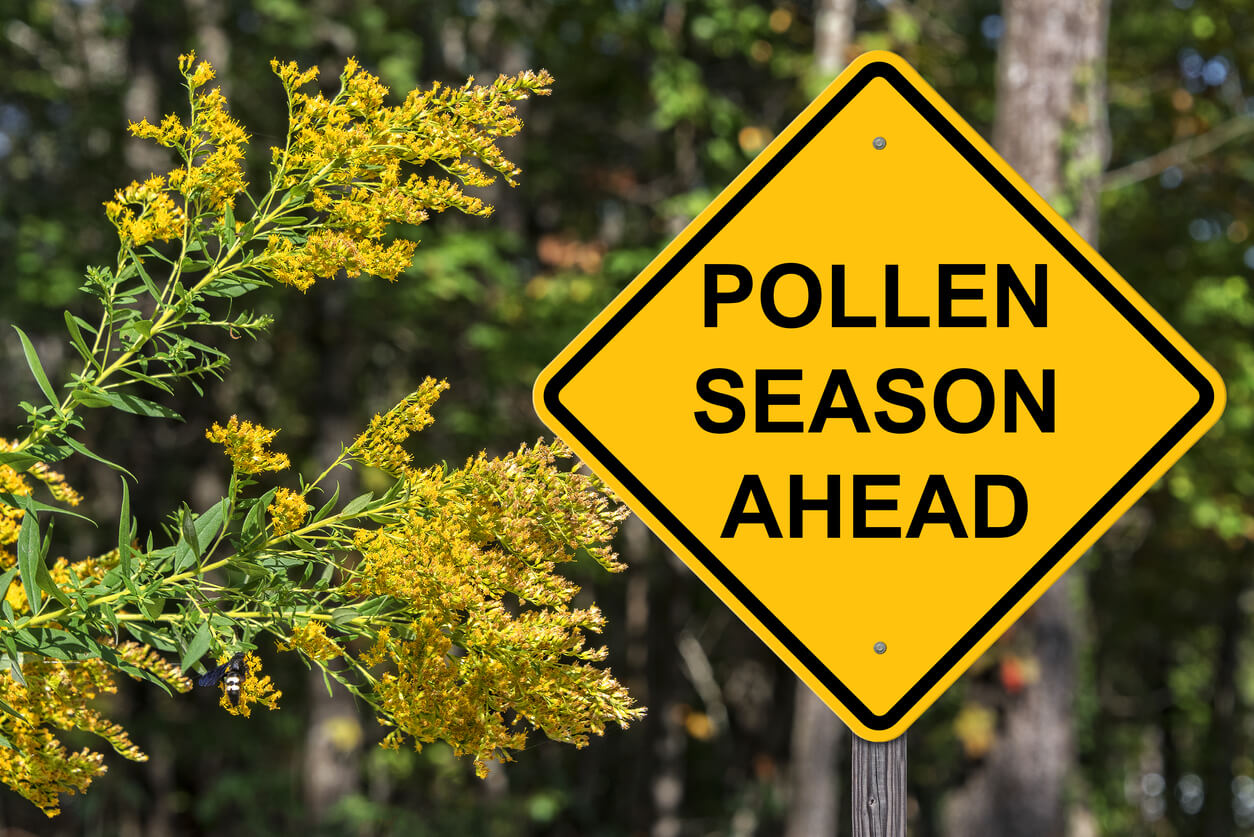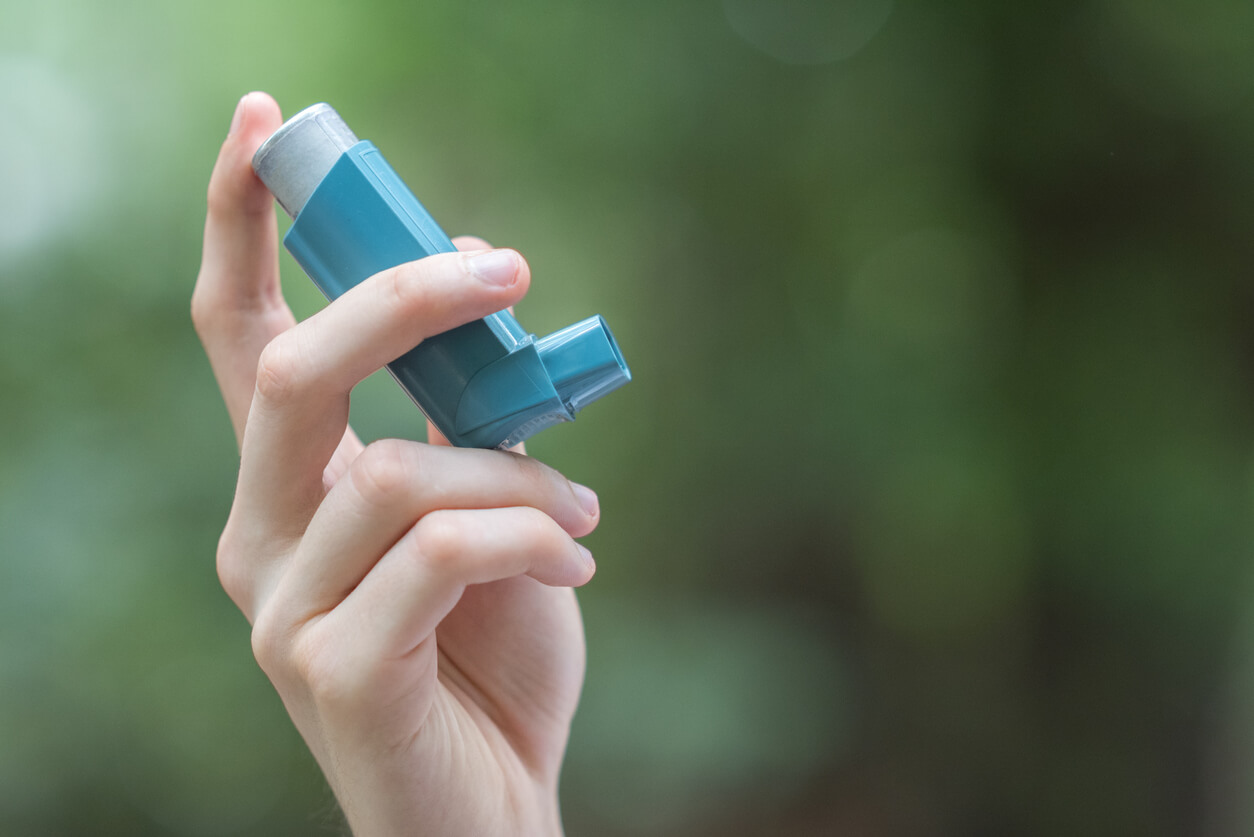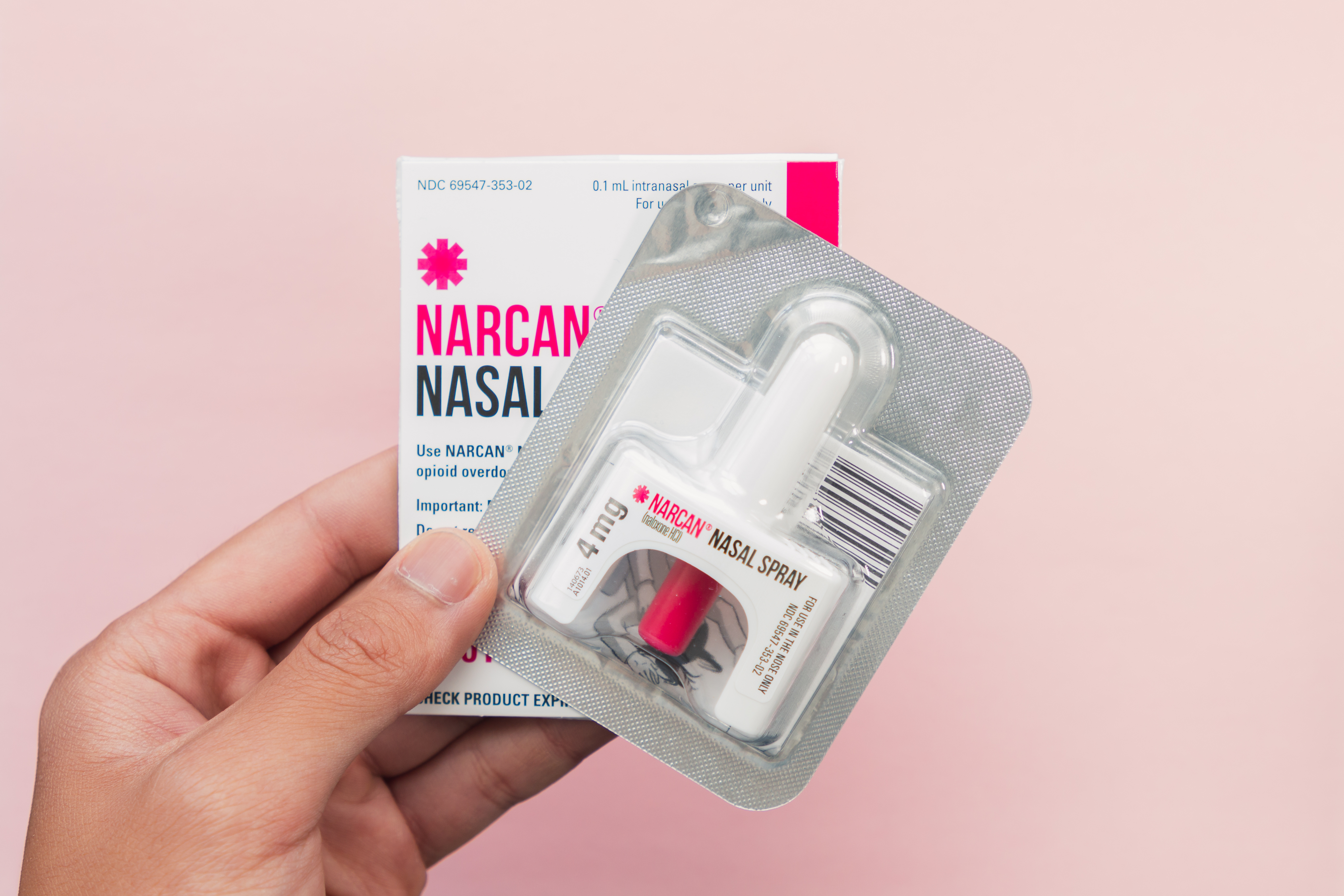The Best OTC and Prescription Drugs for Allergic Rhinitis
Your guide to the best OTC and prescription medicine for allergic rhinitis
Even if you don’t know what allergic rhinitis is, you probably know what it feels like: a stuffy nose, a runny nose, and lots of sneezing. Some people get these symptoms at certain times of the year, while others experience these reactions year-round. Luckily, there are many options to treat your symptoms.
In this article, we’ll explore the best over-the-counter and prescription options for the treatment of allergic rhinitis.
What is allergic rhinitis?
Allergic rhinitis—hay fever—is the medical term for allergy symptoms. Specifically, allergic rhinitis describes nasal symptoms linked with allergic reactions.
Common symptoms of allergic rhinitis include:
- A stuffy nose (nasal congestion)
- A runny nose
- Sneezing
- Postnasal drip (mucus in the back of the throat)
In most cases, the symptoms of allergic rhinitis occur along with other symptoms of an allergic reaction.
Other allergy symptoms include:
- Itchy eyes
- Watery eyes
- Sinus pressure
- Fatigue or drowsiness
- Headaches
- Difficulty breathing
- Skin irritation (like a skin rash or eczema)
What causes allergic rhinitis?
A reaction to an irritating allergen causes allergic rhinitis. Allergens are harmless substances that your body mistakes for a harmful intruder. Your immune system releases histamines to attack the allergen, causing inflammation. This inflammation causes allergy symptoms (including rhinitis).
Common triggers of allergic reactions include:
- Pollen
- Animal dander
- Dust mites
- Cockroaches
- Fungi and mold
What is the best allergic rhinitis medication?
Several over-the-counter (OTC) and prescription allergy medications treat allergic rhinitis. The best medication for you will depend on your specific symptoms and allergic triggers, as well as your own health history. We’ve detailed the best treatment options for allergies below.
Before starting treatment with any allergy medication, talk to your provider about any chronic conditions you have. Tell your provider if you are pregnant or breastfeeding. Even OTC medication can cause side effects that affect your pre-existing health conditions, so it’s important to talk through your treatment options with a provider for medical guidance.
Oral antihistamines
Antihistamine pills and liquids are often the best choice for seasonal allergic rhinitis. These drugs block the release of histamine in the body, which helps prevent the inflammation and irritation that causes allergic rhinitis.
Common OTC antihistamines include:
- Cetirizine (sold under the brand name Zyrtec)
- Diphenhydramine (sold under the brand name Benadryl)
- Fexofenadine (sold under the brand name Allegra)
- Levocetirizine (sold under the brand name Xyzal)
- Loratadine (sold under the brand name Alavert and Claritin)
When choosing an OTC antihistamine, consider the cost and side effects. Most brand-name antihistamines have more affordable, generic versions (fexofenadine versus Allegra, for example). These work just as well as their brand-name counterparts.
Severe allergic rhinitis or year-round allergic rhinitis may require prescription medication for treatment.
Prescription antihistamines include:
- Azelastine nasal spray (generic for Astelin and Optivar)
- Cyproheptadine (generic for Periactin)
- Desloratadine (generic for Clarinex)
- Hydroxyzine (generic for Vistaril or Atarax)
Note that antihistamines may cause side effects such as:
- Dry mouth
- Dizziness
- Drowsiness
- Headache
- Sore throat
- Low blood pressure
If these side effects become severe or do not go away after a few days, talk to your healthcare provider.
Steroid nasal sprays
Corticosteroid nasal sprays are the preferred relief for people with year-round allergies. These medications take a few weeks to take full effect. But, they work to stop the release of histamines before an allergic reaction.
Common OTC nasal sprays include:
- Mometasone (sold under the brand name Nasonex)
- Budesonide(sold under the brand name Rhinocort)
- Triamcinolone (sold under the brand name Nasacort)
- Fluticasone (sold under the brand name Flovent and Flonase)
Prescription nasal sprays include:
- Fluticasone-azelastine (generic for Dymista)
Note that nasal sprays may cause side effects like:
- Intranasal irritation (burning or stinging in the nostrils)
- Nosebleeds
- Headaches
- Sneezing
If you have seasonal allergies, take steroid nasal sprays several weeks before that season begins. This will help ensure that the drugs work to prevent reactions before they occur. If you have year-round allergies, it may take several weeks to start feeling better. Continue using the nasal spray consistently, even if you don’t feel it's working immediately.
Decongestants
Decongestants are best used for short-term relief from allergic rhinitis. They clear up nasal congestion and reduce mucus, making breathing easier. These drugs should not be used consistently for more than a few days, or they may cause congestion to get worse.
Oral decongestant pills, liquids, and nasal sprays are widely available. Most oral decongestants are combined with an antihistamine to prevent and relieve allergic symptoms.
OTC oral decongestant/ antihistamines include:
- Loratadine and pseudoephedrine (sold under the brand name Claritin-D)
- Cetirizine and pseudoephedrine (sold under the brand name Zyrtec-D)
- Fexofenadine and pseudoephedrine (sold under the brand name Allegra-D)
Decongestant nasal sprays include:
- Oxymetazoline (sold under the brand name Afrin)
- Tetrahydrozoline (sold under the brand name Tyzine)--also available as eye drops for allergic conjunctivitis
Again, it’s important to note that you should only use decongestants for up to 7 days. Using these medications any longer than that can cause your symptoms to get worse.
What other allergic rhinitis treatment options are there?
The medications detailed above are among the most widely used for allergy relief. However, several other options may also help you feel better.
Leukotriene modifiers: Montelukast is the only prescription leukotriene modifier that is FDA-approved for allergic rhinitis. Leukotrienes are chemicals released by your body in response to an allergen. They cause effects similar to those of histamine. By blocking the release of leukotrienes, these medications prevent the inflammation that causes allergic rhinitis.
Cromolyn nasal spray: Cromolyn (sold under the brand name NasalCrom) can be used to treat both seasonal and year-round allergic rhinitis. It is available over the counter under its brand name or in its generic form. Cromolyn works on cells known as mast cells to prevent them from releasing chemicals that cause allergic reactions.
Immunotherapy: People with severe or year-round allergic rhinitis may be referred to a Doctor of Immunology—also known as an allergist—for allergy shots or sublingual immunotherapy. These are essentially two methods of doing the same thing. They both expose your immune system to small amounts of your allergic triggers. Allergy shots do this through shots delivered just under the skin every month for several years. Sublingual immunotherapy does this through a measured drop of the substance on the tongue once a day. Immunotherapy is safe and effective but may take several years before you notice it working, so you should not use it for immediate symptom relief.
When should I see a doctor about my allergies?
Most cases of allergies are mild and do not require medical treatment. You can usually treat your symptoms with over-the-counter medication and preventative methods.
If you experience allergy symptoms but don’t know what’s causing them, talk to a provider about scheduling a test to determine your trigger. Providers often use a skin test or blood test to pinpoint the specific allergen causing your symptoms. Knowing what causes your symptoms can help you avoid your triggers.
If you are taking allergy medicine (OTC or prescription) and are experiencing side effects, you might consider speaking to a provider about your reaction to the medication. They may be able to recommend an alternative medication.
How Sesame can help
Get same-day allergy relief with online allergy appointments on Sesame. Connect with a provider right away. Talk about your symptoms and the best treatment for you. If appropriate, providers can prescribe allergy medication. Doctors will send prescriptions to your local pharmacy. They are usually ready for pickup within minutes of your appointment.









